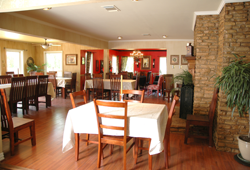The Rubin Family's Transplant Journey and Their Lasting Legacy

The Rubin Family's Transplant Journey and Their Lasting Legacy
On September 25, 1963, 10-week-old Michele Rose Rubin passed away from
unknown causes. After an autopsy was performed, her cause of death was
deemed 'not hereditary' and her parents, David and Judy Rubin, were
encouraged to have other children. Gary was born to the Rubins on January 2,
1965.
Around his second birthday, Gary complained about a burning feeling in his
eyes. And for the next three years, David and Judy took their son to many
appointments with specialists. Finally, at the age of five, Gary was
diagnosed with Tyrosinemia, a metabolic disorder that attacks the liver.
The autopsy diagnosis for Baby Michele had been incorrect — Tyrosinemia is
hereditary. Both Michele and Gary had it.
The Rubins heard horrific tales from doctors: "He won't live to be a
teenager." "He won't grow to be over five feet tall." "He will one day
develop a tumor in his liver." Gary defied the odds, and, as a teenager,
dreamed about being a hockey coach or a chef. He graduated from college and
became a chef in Florida so he could live with his parents.
His mother remembers asking him to cook a meal valued at $9,000 (the cost
of his education). This occurred upon his graduation. According to Michele,
"It was worth much more than that to us because he had survived to be a
teenager and was 5'6" tall. Our hope was that the liver tumor would never
appear."
Gary left Florida at the age of 24 and returned to New York as a Garde
Mangé Chef at Club 21. During an appointment at a New York hospital, he
received the dreaded news: A liver tumor had appeared and the time for a
liver transplant had come. Gary accepted the news because he thought that
once he had his new liver, the Tyrosinemia would be history.
On July 23, 1990, Gary received the call came from the University of
Pittsburgh Presbyterian Hospital letting him know a liver was available.
"Gary called, very excited, to tell us he was on his way to the hospital,"
David remembered. "We met him in Pittsburgh on July 24th after spending
hundreds of dollars on airfare, which we could not afford. We had no one to
help us financially."
Gary's transplant took 13 hours and was deemed by his transplant team as
"very successful except for the large and aggressive tumor."
According to Judy, "We were very low on funds. When he came out of the
hospital on August 9th, the first thing he wanted was three Arby's roast
beef and cheese sandwiches because his Tyrosinemia had prevented him from
eating protein for 25 years. But because of our financial situation, it was
difficult to buy anything for him."
Gary returned to Florida in early September. He had constant pain in his
back and then broke his leg. David and Judy took him back to New York for
an evaluation in January 1991. It was during this visit that Gary was
diagnosed with metastatic cancer from his liver. He was flown home on an
air ambulance — a flight that cost $2,700 and had to be paid in advance.
This was yet another expense the Rubins had difficulty paying.
Gary died a year later, on his 27th birthday, after a very courageous
battle.
"I swore if I won the lottery, I would go to the ICU waiting room in
Pittsburgh, listen to families, and give money to the people like us, who
had nothing," Judy said. "We have more resources now and I have named COTA
in my will, with a fund to be established in Gary's name that will help
transplant families who have financial issues that prevent them from
focusing on their child."
Through estate planning and by using their wills, Judy and David Rubin
created the 'Gary Rubin Memorial Fund.' Their legacy and desire to assist
other transplant families is helping COTA patients who have also been
diagnosed with Tyrosinemia.
If you would like to contribute to the 'Gary Rubin Memorial Fund' or
receive information about how to leave a legacy through your will or as
part of an estate plan, please contact COTA President, Rick Lofgren, at
[email protected]
or by calling 800.366.2682.

